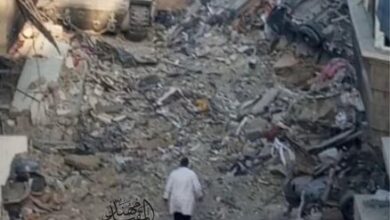
Khalil Tafakji, a specialist in settlement affairs, warned of the danger of a new settlement plan approved by the Israeli occupation authorities to establish 1,700 settlement units in Jerusalem, which will affect the geography and demography of the Palestinian presence in the Holy City.
Al-Tafakji said in press statements today, Saturday, that the occupation is racing against time to expand existing settlements and establish new ones in Jerusalem.
He explained that the work of expanding settlements on the lands of the towns of Beit Iksa and Lifta in occupied Jerusalem is continuing, pointing to the near completion of the construction of infrastructure of railways and roads, to strengthen settlement and link the new settlement units with the “Ramat Shlomo” settlement, in which the occupation authorities recently established 1,600 settlement units. New.
He added that the approval of these new units comes as part of a systematic and time-scheduled settlement project, to complete the establishment of 58,000 settlement units in East Jerusalem, with the aim of significantly increasing the number of settlers in it, to prevent the establishment of a contiguous Palestinian state geographically.
In a related context, the Ministry of Foreign Affairs and Expatriates condemned the occupation plans to build hundreds of new settlement units in occupied Jerusalem, within what is known as the 2000 master plan.
In a statement issued today, Saturday, the “Foreign Ministry” considered that the new plans are an extension of the annexation and Judaization of Jerusalem, separating it from its Palestinian surroundings and linking it to the Israeli depth, and an official Israeli disregard for the decisions of international legitimacy and the UN positions and demands calling for stopping settlements, and a deliberate sabotage of regional and international efforts to achieve calm.
And it warned against the consequences of dealing with the processes of deepening and expanding colonial settlement and building new settlement units as things that have become normal and familiar because they are repeated and continue constantly, calling for urgent international intervention that respects the resolutions of international legitimacy, especially Resolution 2334, and forces the occupying state to stop building these plans.





